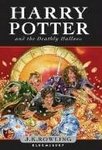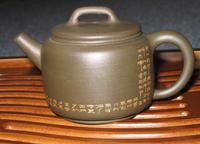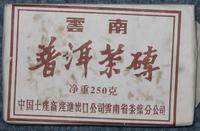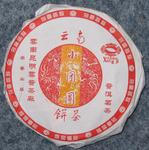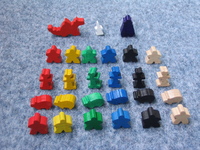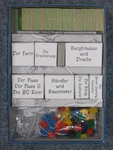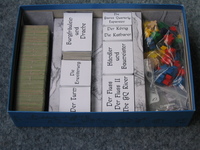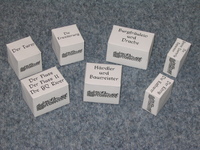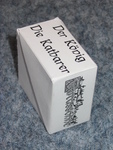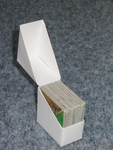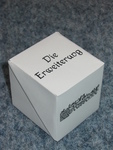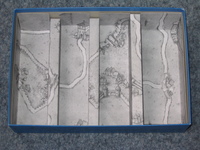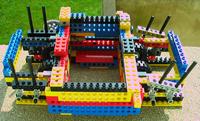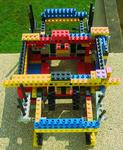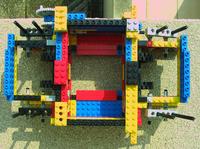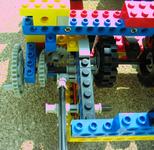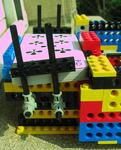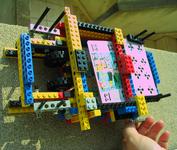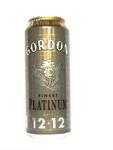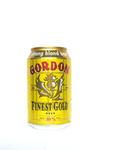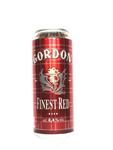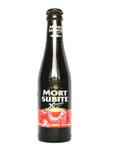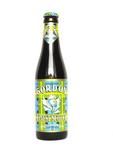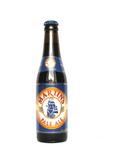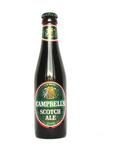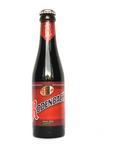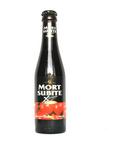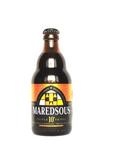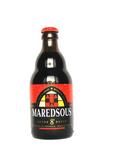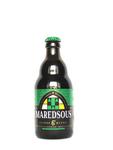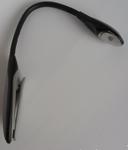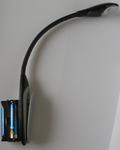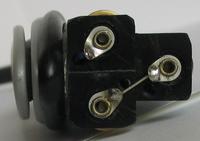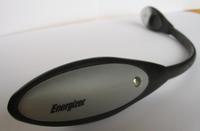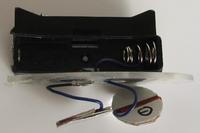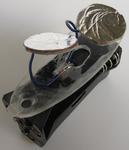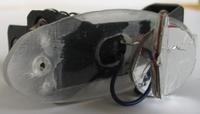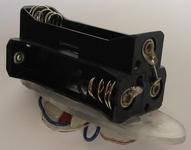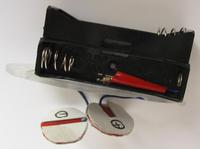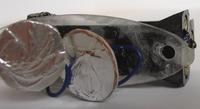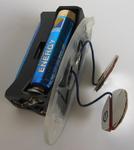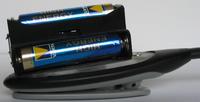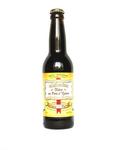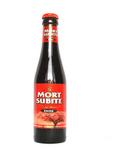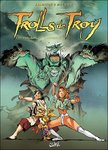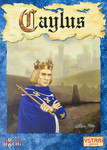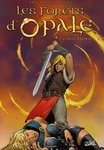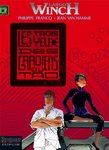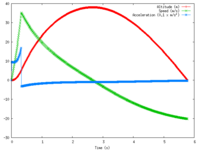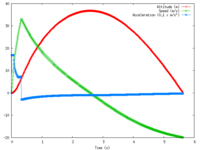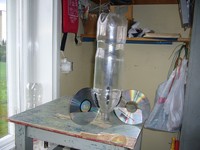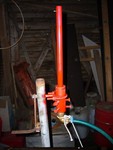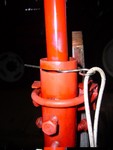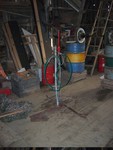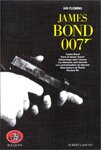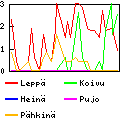Harry Potter and the Deathly Hallows
Traduction: [ Google | Babelfish ]
Catégories : [ Livres ]
When Harry Potter turns seventeen, the protection charm given by his mother when she died ceases working. The Order of the Phoenix decides to move Harry to a safe location. Ron, Hermione and Harry, according to Dumbledore's will, receive the Deluminator, a book of tales for children and the first snitch caught by Harry. Shortly after that, during the wedding of Bill Weasly and Fleur Delacour, they are attacked by Death Eaters, and Harry, Hermione and Ron flee to London and hide in Sirius's family house, now Harry's property. They discover thanks to Kreacher that the fake locket recovered by Harry and Dumbledore a couple of months earlier has been Sirius's brother's property, and that the real locket was hidden in the house. While the Order of the Phoenix was cleaning the house a year earlier, it had been thrown away, stolen by Kreacher and then by Mundungus Fletcher who sold it to Dolores Umbridge. The three friends then steal the locket from Umbridge, at the Ministry (now under the control of the Death Eaters), and manage to escape miraculously. Their safehouse being compromised, they flee in the countryside, camping and moving all the time. Ron leaves the trio after a fight with his friends. Harry and Hermione decide to go to Godric's Hollow, where Bathilda Bagshot, the great historian of magic leaves, hoping that she would know where Dumbledore had hidden Griffindor's sword, one of the only weapons that can destroy Horcuxes. They fall into a trap and make again a narrow escape. One night, Harry follows a Patronus which leads him to the sword. Thanks to Ron, reappearing just in time, they manage to get the sword and destroy the locket. Later, they go and see Xenophilius Lovegood who knows about a symbol they keep on finding on their path. The symbol represents the Deathly Hallows, which are the Elder Wand, the Resurrection Stone and the Invisibility Cloak. Again, they manage to escape the Death Eaters, warned by Lovegood who is blackmailed through his daughter's life. By mistake, they are later caught by Death Eaters and led to Malfoy's Manor, where they learn that Griffindor's sword is in Bellatrix Lestrange's vault at Gringott's; then they escape and take a few other prisoners with them: Luna, Ollivander and Griphook, a goblin working at Grigott's. Thanks to him, they manage to enter Lestrange's vault at the bank and take Ravenclaw's cup, another Horcrux, but loose the sword. They then go to Hogwarts, where Harry knows that Hufflepuf's diadem is hidden, thanks to his telepathic link to Voldemort. They destroy the cup with a fang of the dead basilisk, still lying in the Chamber of Secrets. Hogwarts is soon under attack by the Death Eaters, but Harry manages to find the diadem and destroy it. He then learns from Snape's memory that he is Voldemort's seventh horcrux, and that he must die in order for Voldemort to become mortal again. He also learns that Snape was in love with his mother, that he left the Death Eaters when Voldemort killed Lily, and was always faithfull to Dumbledore. Dumbledore was dying because of a curse, and Snape had killed him on his own request. Also Snape was the one who lead Harry to the sword in the forest. Harrythen faces Voldemort in the Forbidden Forest, but instead of dying, he meets Dumbledore in a kind of dream, who explains him that Voldemort's body is made partly of Harrys' blood, and that Voldemort could not kill him. Voldemort however killed the part of Harry who was Voldemort's soul. Harry is then taken to Hogwarts as a proof that Voldemort has won, but the defenders of the castle refuse to surrender, and attack the Death Eaters again. Neville Longbottom kills Nagini, Voldemort's snake and last horcrux, then Harry faces Voldemort in a duel and kills him. The epilogue tells about Harry's and Ginny's children going to Hogwarts along with Ron's and Hermione's.
[ Posté le 26 août 2007 à 22:25 | 1 commentaire | lien permanent ]
